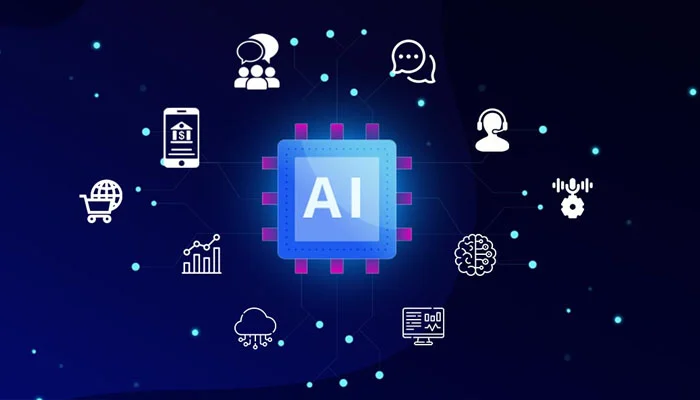Artificial intelligence (AI) is revolutionizing industries across the world, providing companies with the tools to improve operational efficiency, innovate products and services, and deliver personalized customer experiences. Custom AI development services are key in driving these transformations, offering tailored solutions that meet specific business needs. Here's how AI is making an impact across different sectors.
AI in Manufacturing: Revolutionizing Production
- Robotics and Automation: AI-driven robots are enhancing manufacturing by automating repetitive tasks such as assembly and packaging. This reduces human error, speeds up production times, and lowers labor costs, making production more efficient and cost-effective.
- Predictive Maintenance: AI is helping companies avoid costly downtime by predicting equipment failures. By continuously monitoring machines, AI systems analyze data to detect signs of wear or malfunction, enabling maintenance teams to act proactively and reduce repair costs. Click here
AI in Healthcare: Enhancing Patient Care and Diagnostics
- AI-Driven Diagnostics: AI algorithms can analyze medical data like X-rays and MRIs with high accuracy, helping doctors detect diseases such as cancer earlier. This not only improves diagnosis but also allows for quicker intervention, increasing patient survival rates.
- Personalized Treatment Plans: By analyzing patient data, AI can suggest personalized treatment options. This ensures that patients receive care tailored to their individual needs, improving the likelihood of successful outcomes.
AI in Finance: Enhancing Efficiency and Security
- Fraud Detection: AI helps financial institutions identify fraudulent activities in real-time by analyzing transaction patterns. This allows banks to detect and prevent fraudulent transactions before they occur, enhancing security and protecting customer assets.
- Automated Customer Service: AI-powered chatbots assist customers with their inquiries 24/7, providing instant responses to questions about accounts, transactions, and other banking services. This reduces wait times and enhances the overall customer experience.
AI in Retail: Personalizing the Customer Experience
- Personalized Recommendations: AI analyzes customer data to suggest products based on past browsing and purchasing behavior. This increases customer satisfaction by offering relevant items and can drive sales through targeted recommendations.
- Dynamic Pricing: AI helps retailers adjust prices based on factors like demand, competition, and market trends. This ensures that products are competitively priced while maximizing revenue and customer satisfaction.
AI in Education: Transforming Learning Experiences
- Adaptive Learning Systems: AI-powered platforms personalize learning by adjusting content to a student’s strengths and weaknesses. This helps learners progress at their own pace, improving engagement and retention.
- Automated Grading: AI automates grading, providing instant feedback to students. This frees up teachers to focus on interactive teaching while ensuring consistent, unbiased evaluation. Click here
AI in Logistics: Optimizing Operations
- Route Optimization: AI uses real-time data to optimize delivery routes for trucks, minimizing fuel consumption and improving delivery times. This leads to cost savings and better service for customers.
- Warehouse Automation: AI-powered robots help in sorting and organizing inventory, streamlining warehouse operations. This reduces human labor, speeds up order fulfillment, and improves accuracy in managing inventory.
The Future of Custom AI Development
- AI Integration: Custom AI development will become more integrated across business operations, enhancing decision-making and automating complex tasks. Companies will increasingly rely on AI to streamline processes and enhance productivity. Click here
- Ethical AI Development: As AI continues to evolve, businesses must adopt ethical practices to ensure fairness, transparency, and accountability. Ethical AI development is critical to building trust and preventing bias in AI systems.


